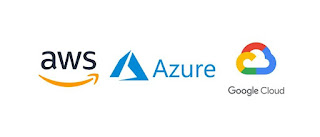HOW AMAZON AWS BECOME THE MARKET LEADER OVER OTHER CLOUD SERVICES

What is Cloud Computing? ☁ Cloud computing is the delivery of different services through the Internet. These resources include tools and applications like data storage, servers, databases, networking, and software. Rather than keeping files on a proprietary hard drive or local storage device, cloud-based storage makes it possible to save them to a remote database. One of the Cloud Service providers is AWS — Amazon Web Services. We don’t need to pay any upfront amount; AWS offers pay-as-you-go pricing — which enables you to pay only for what you use. Once you stop your usage, there is no fee to terminate, and billing stops immediately. Concept behind Cloud Computing Technology: Now let’s talk about what is the concept behind cloud computing. We need to go through some steps for this. Let’s understand the following: There are basic three ways to install Operating System. 1. Bare Metal 2. Virtualization 3. Containerization In Bare Metal you directly install the OS to ...





